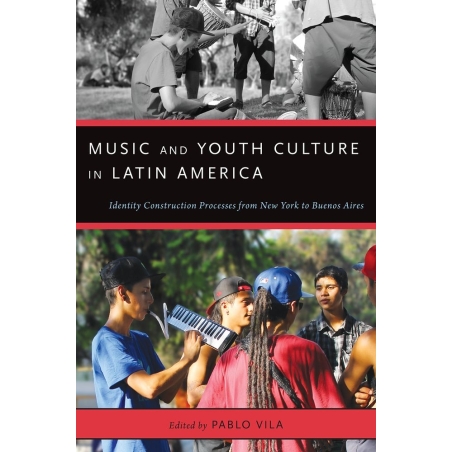This book examines the ways in which music is used to advance identity claims in several Latin American countries and among Latinos in the US. Drawing on a vast array of fields including popular music studies, ethnomusicology, sociology, and history it sheds new light on the complex ways in which music provides people from different countries and social sectors with both enjoyment and tools for understanding who they are in terms of nationality, region, race, ethnicity, class, gender, and migration status.
CONTENTS
Acknowledgements
Introduction
Pablo Vila
Chapter 1: Narrative Identities and Popular Music: Linguistic Discourses
and Social Practices
Pablo Vila
Chapter 2: Past Identity: Guillermo Klein, Miguel Zenon and the Future
of Jazz
Jairo Moreno
Chapter 03: Errant surfing. Music, YouTube, the role of the Web in
Youth Cultures
Rossana Reguillo
Chapter 04: Music and Post-Communist Subjectivities in Cuba
Ruben Lopez Cano
Chapter 05: On Whitening and other Disaffections: The
Impact of Tropipop on Colombia's Music Scene
Hector Fernandez L'Hoeste
Chapter 06: Fusion Rock Bands and the New Peru on Stage
Patricia Oliart
Chapter 07: Political activists, playboys and hippies: musical
movements and symbolic representations of Brazilian youth in the 1960s
Marcos Napolitano
Chapter 08: The Pro Tools Generation. Digital Culture, Liveness,
and the New Sincerity in Brazilian Popular Music
Frederick Moehn
Chapter 09: A Newer Tango Coming from the Past
Laura Cambra and Juan Raffo
Chapter 10: Life Trajectories and Dejuvenilization in Argentine
Rock
Adrian Pablo Fanjul
| Series | Currents in Latin American and Iberian Music |
|---|


